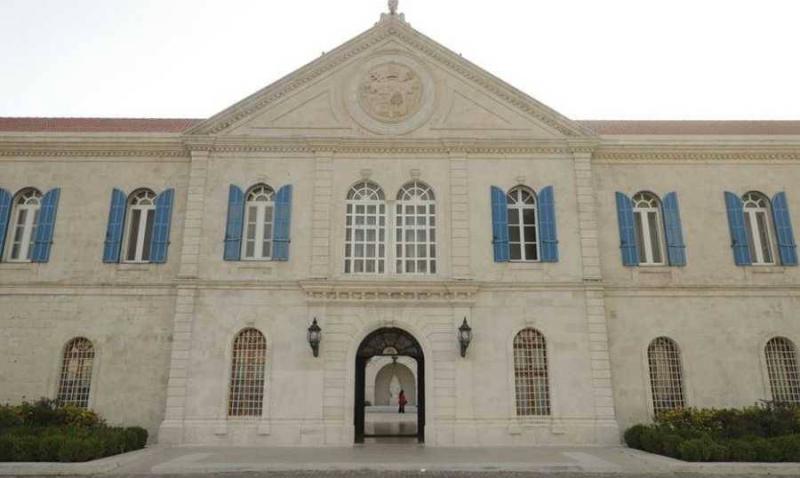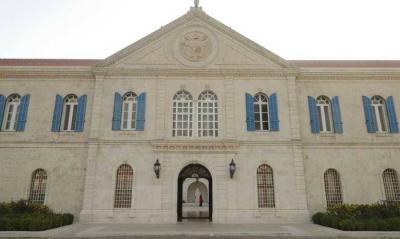The Maronite Patriarchate is closely monitoring the issue of Syrian displacement, categorizing it as an existential threat. Maronite Patriarch Cardinal Bechara Boutros Al-Rahi is leveraging his relationships with European countries to undertake a new mission aimed at convincing the old continent of the risks stemming from the ongoing displacement crisis. Bkerke has detailed figures derived from various official agencies and statistics conducted by research centers regarding the demographic reality's dangers if displacement continues in its current form. This threat is acknowledged by Christian leaders, including Lebanese Forces Party leader Dr. Samir Geagea and officials from other Christian parties and movements.
Bkerke seeks a comprehensive solution to the displacement crisis through the Lebanese state. Patriarch Al-Rahi calls on state institutions to assume responsibility; otherwise, the situation may lead to a significant explosion and confrontation between Lebanese and Syrians, as reported by "Nidaa al-Watan." This reality also relies on figures regarding the Syrian influx within Lebanese cities and towns, as well as the number of illegal establishments being opened, adversely affecting the livelihood of Lebanese citizens. To emphasize that the crisis is not sectarian, the city of Tripoli, with its Sunni majority, suffers from illegal Syrian overflow and the opening of various shops, negatively impacting local merchants.
The recent meeting held by Al-Rahi in Bkerke, where the issue of displacement was discussed in the presence of ministers and security leaders, provided insight into Bkerke's approach to this sensitive national file. Although Christian-majority districts could theoretically end the presence of illegal Syrians, especially following the murder of Lebanese Forces coordinator in Jbeil, Pascal Suleiman, which mobilized opposition against the new Syrian occupation, Bkerke aims for a fundamental resolution to the situation across all districts and governorates, particularly in Akkar, Tripoli, and Bekaa.
Bkerke views the solution as the enforcement of Lebanese laws and the initiation of the deportation process for all illegitimate presences, with the state implementing its authority effectively. According to the church, the responsibility begins with the individual and extends to municipalities, local leaders, and state agencies; if everyone cooperates, solving the displacement crisis becomes easier. Bkerke does not overlook the external factors affecting the persistence of the displaced, specifically a scheme for demographic change in Syria and Lebanon, the absence of an international decision to end the Syrian war, and an external plan to prolong the presence of the displaced in Lebanon and possibly resettle them.
Just as the state and parties objected to the actions of the UN High Commissioner for Refugees, Bkerke similarly expresses anger towards these actions, urging the state to take measures that protect the sovereignty of the nation. Bkerke conveys its dissatisfaction with the European stance, having previously discussed the displacement crisis with French President Emmanuel Macron and other European officials. Bkerke is actively working to change Europe's perspective, whether through regular meetings that the patriarch holds with European ambassadors or through the organic relationship that binds Bkerke with the Vatican.
In this context, Al-Rahi's efforts to convince the Vatican of the Lebanese and Christian viewpoint on the displacement file continue; in the past, some bishops in the Vatican viewed the Maronite Church as racist for not welcoming the displaced. However, the perspective has now become more realistic, touching upon the bitter realities facing Lebanon. Al-Rahi is tasked with utilizing his unique relationship with the Vatican to reshape Europe's view on the displacement issue. If the old continent refuses to accept them into its countries, why not allow them to return to theirs? Al-Rahi intends to focus on this point moving forward, banking on a favorable Vatican response to persuade Europe to reconsider its stance and assist Lebanon. This file will certainly be among the priorities that Al-Rahi will raise during his upcoming visit to the Vatican, noting that several reports have reached the Holy See via the papal embassy in Harissa, highlighting the gravity of the displacement crisis on the Christian presence and Lebanon as a state, according to "Nidaa al-Watan."




